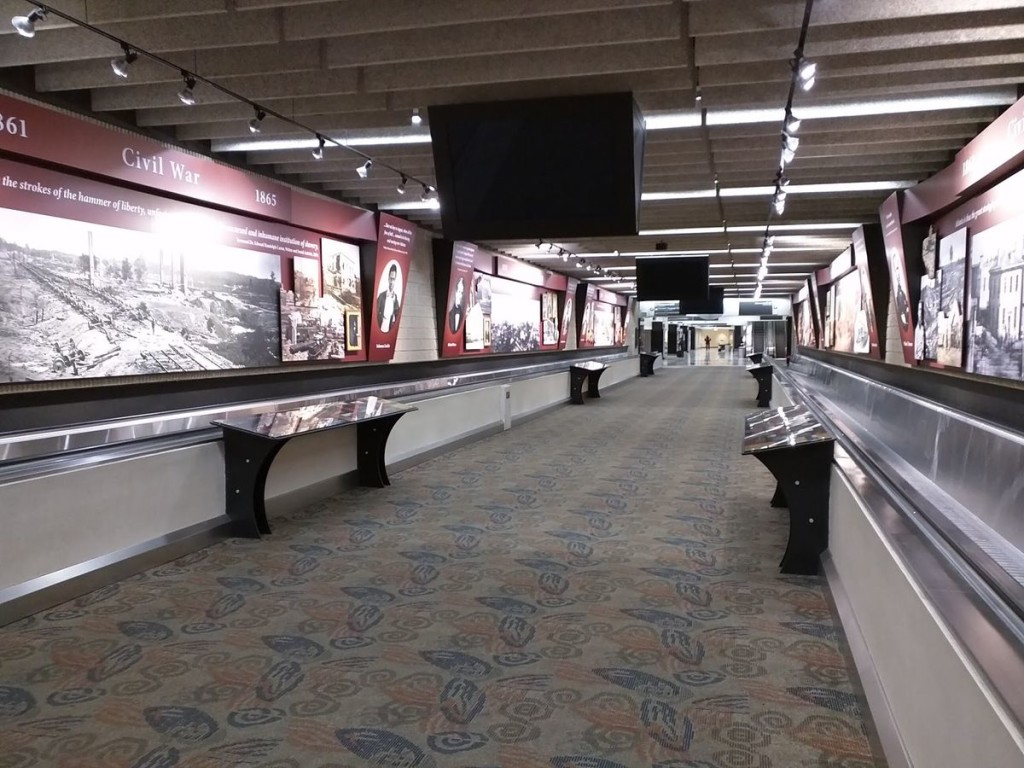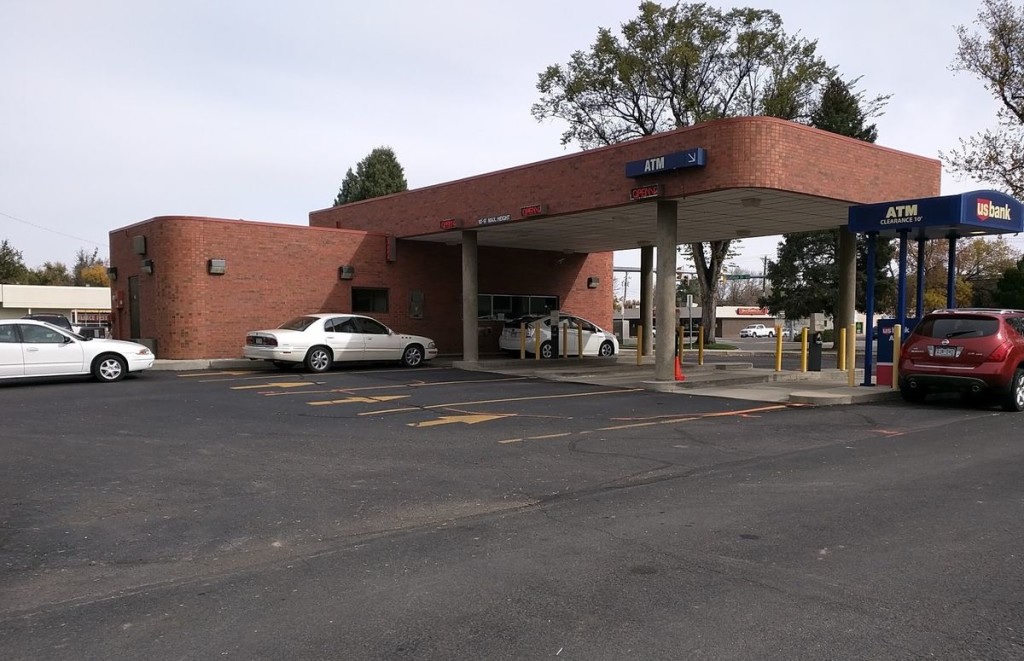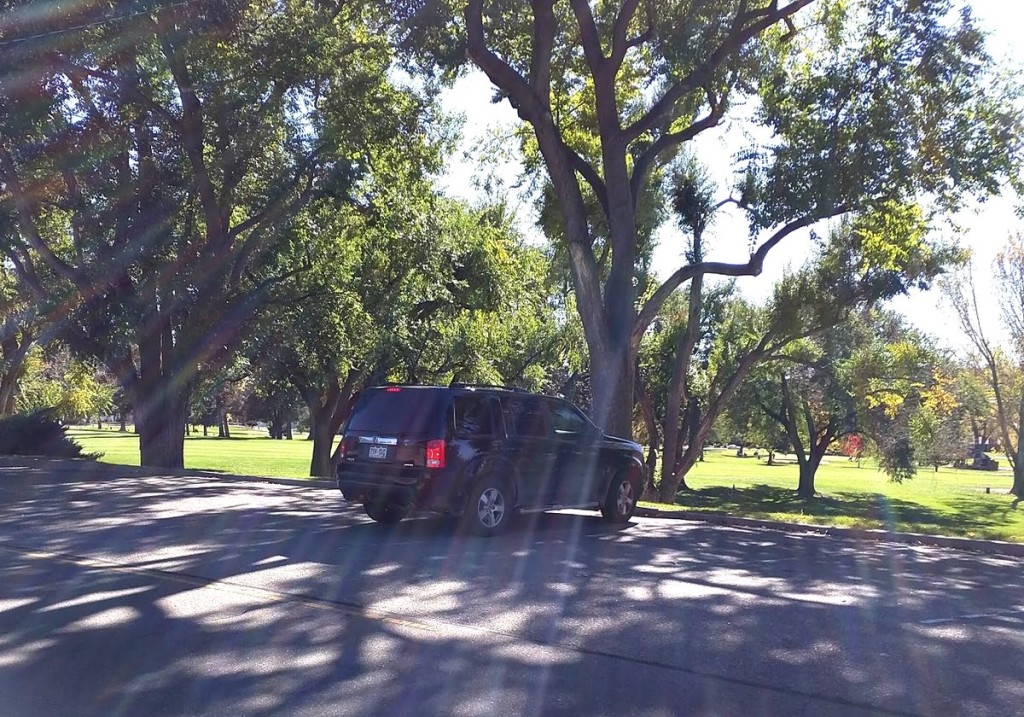Understand the Drive-Thru and We Can Solve All Problems

Morning sunrise from the front door of my hut.
I've been out traveling in Ecuador for the past two weeks, living in the jungle, climbing waterfalls and noting the cultural differences of a country set about 3000 miles South and 30 years back in time from my own. Every time I settle into life in a new place, I'm always amazed at how many objects and luxuries I have left behind, and yet how little I miss them.
Eventually the adventure came to an end, and with my eyes and ears still attuned to the quiet of the rainforest, I marveled at the enormous highways and parking lots and suburbs of Atlanta as I flew in for a layover on the way home. Awakening my legs from almost five hours of painful inactivity, I emerged into the world's busiest airport and started following the signs to concourse B so I could catch the final flight home.
The signs direct you to an underground train, which circulates between all six concourses. But I noticed in smaller letters that there was also an option to walk the same route. So I followed the arrows:

Atlanta Airport's secret walking route
I was amazed to find a beautiful carpeted walkway, lined with a museum of Atlanta history. Then another train station with an escalator up to the next concourse, then another walkway, another concourse, and so on. In total, I walked almost a mile underground like this, and encountered exactly one other person walking as I was instead of taking the train.
In the world's busiest airport, with thousands of people trundling by on the trains every few minutes, we were the only two people with the motivation to spend a few minutes using our own legs to get around.
With all this fresh in my mind, I returned at last to Longmont and reconnected with my 10-year-old boy after an unprecedented amount of time apart.
We spent the first morning going for a walk and having adventures along the way. We walked to a bank machine to deposit some checks and he asked me about the odd facility that had been built up to facilitate banking:

Actual thing somebody thought was a good idea to build, and actual people using it (!?)
Together we figured out the system: there was a little building to house three employees. But there was no walk-up access to these people; you could only communicate to them through microphones and speakers, and send them packages through a system of subterranean vacuum tubes. The tubes terminated in three lanes into which you could drive a car. Then there was a fourth lane equipped with the slightly newer invention of a computerized bank machine, and the fifth option of a walk-up bank machine right in the building itself.
It was almost as if we were looking at a banking setup on Mars, where everything had been designed so that humans could get their business done without ever coming in contact with the planet's hazardously thin sub-zero atmosphere.
All of this was placed in the center of a considerable sea of asphalt: roughly half an acre of it, enough to fit four spacious detached houses with alley-loaded garages or even an apartment building that could house hundreds of people.
I imagined the construction of this facility: decades ago, a tractor trailer probably showed up towing an 80,000 pound CAT excavator. This thing would have smashed down a few houses or trees or whatever was there in the past, 10-wheeler dump trucks would have taken 100 loads of debris and soil away, and returned with another 100 loads of gravel, asphalt and building materials. Steamrollers and bulldozers and laborers would have toiled for a few months, and at the end of it all this gleaming marvel of modern convenience would have been completed.
A million dollar parking lot, thousands of gallons of Diesel, and a million pounds of trucked in materials, consuming a prime piece of downtown real estate big enough to house a huge number of people. All so a few dozen people a day can spend an extra minute burning gas and sitting on their asses instead of using their legs for those 60 seconds.
Just think for a minute of the enormity of this expenditure for such a tiny marginal benefit, and compare it to one example of a slightly more efficient option:
The bank pays the city a small annual lease fee to keep a tiny bank machine booth in the 21-acre public park just across the street. Bank saves money, city makes money, and people benefit for many decades from less traffic and wasted space.
If we can truly appreciate this contrast, scaled up across billions of people in millions of towns and cities, I think we can sum up concisely the underlying reason for most of our problems these days.
At both the individual and the societal level, we just don't give even the slightest shit about efficiency. If the market is there, goods get produced. If we vote for something, our representative governments will try to make it happen. If a marketer or a lobbyist can shift the markets or the votes to create demand for their product, you bet that sumbitch'll do it. And if a 64-ounce cup of cola or a zero-interest loan on a luxury truck is dangled in front of a hungry consumer, you bet he'll reach out and grab it.
Later that day, we went for another walk to a park near our house, and saw this:

Area man demonstrates the level of thought that goes into SUV ownership.
A brand-new Honda Pilot SUV, all $37,000 and 280 horsepower of it, was sitting there idling quietly on a little ridge overlooking the golf course. A single person was sitting inside, swiping at his phone and fiddling with the radio. We walked past in the bright sunshine, enjoying the spectacular fall air and looking at the crisp snowcap that had begun to form on the high mountains to the West.
25 minutes later, after a session on the slides and swings of the park, we walked back on the way home and found the same Honda there, still idling. Lightly poisoning the owner and every other resident of the planet, burning fuel at roughly the rate of 75 living human bodies. All because the owner hadn't thought of pressing the soft-touch "engine off" button and lowering a few of the power windows to let in the quiet, clean 72-degree air. Or hell, opening the airbag-equipped, side-impact-protected door and stepping out of his Crushing Debt Tank into Nature's splendor for a moment or two.
Like the Drive-Thru, this is a perfect encapsulation of the amount of thought we currently give to efficiency - both in our personal lives and as a society. Exactly none at all.
If the average Joe Taxpayer or Josephine Consumer were able to prop open one eye even just a tiny bit for just a brief period of time, in order to give the slightest shit about efficiency - meeting goals with minimal waste instead of just sliding along blindly in a chute greased with their own drool, the change we would experience would be absolutely spectacular.
Let's take the three-headed demon of energy consumption, oil supply and climate change for example. Geologists grimly adjust reserve estimates and scientists chart the retreat of glaciers. Countries fight to add renewable energy sources but all predictions point to insurmountable obstacles. So much science and so many calculations, and yet nobody bothers to state the obvious: We could instantly cut our consumption of everything by at least 75%, just by starting to give only the slightest shit about how much we consumed.
So the succesful oil services businessman who likes 16MPG pick-em-up trucks might still decide to buy one, but maybe he'd also throw down 3 grand for a used Honda Insight so he could enjoy 75MPG travel whenever he's not hauling something. He'd make roughly a 100% annual return on investment and cut his fuel consumption by more than 75%.
People would just make slight adjustments in how far out in the suburbs they would be willing to live, how big to build their houses and what to do on the weekends. Tiny tweaks to vacation and family planning, brief considerations between steak and chicken.
City planners would just briefly entertain the possibility that at least a tiny percentage of its population will have working legs and thus not use a car for 100% of trips, allowing us to replace 60-foot-wide roadways everywhere and an acre of parking for each building, with 30-footers and a few shared parking spaces and some bike racks.
City footprints would shrink by 75% along with infrastructure spending, commutes would shrink, the 75% of healthcare spending that we currently dump into self-inflicted lifestyle diseases would almost disappear. We would be faced with an enormous surplus of energy, time, money, and awesomeness at the individual, city, and national level. Given a few years of such surpluses, the bounty would spill over into the international and then Earth-wide level.
We would all be ten times richer and with enough spare time and money to help those few who have a bit more trouble getting with the program. We'd live 20 years longer and the cost of medical and education and social security and unemployment insurance and every other band-aid for our current woes would drop to a negligible fraction of our national wealth.
All by just giving the tiniest shit for just a few seconds a day.
Are we willing to at least consider this idea briefly, or should we just keep arguing about how to keep the old system going, because it does not dare to suggest that giving a shit is necessary?
Afterword:
Sure, it's easy for me to joke about giving a shit, but how would we really implement this in real life? I think we should start by:
- Recruiting engineer/economist/philosophers rather than salesperson/preacher/tycoons to become our political leaders.
- Insisting that our government use science rather than ideology when making decisions about things. The best thing you can ever experience is being proven wrong by well-gathered data, and then learning from it.
- Studying personal happiness rather than retail catalogs and car brochures when trying to improve your lot in life.
- Immediately giving up all forms of TV and spend that time walking and doing other things outside. How would your life and your health change, if you spent at least 4 hours out of every 24 in the great outdoors?
- When you live by this example, you automatically pass the values to everyone around you. Whether you notice or not, people are watching you and they will follow.